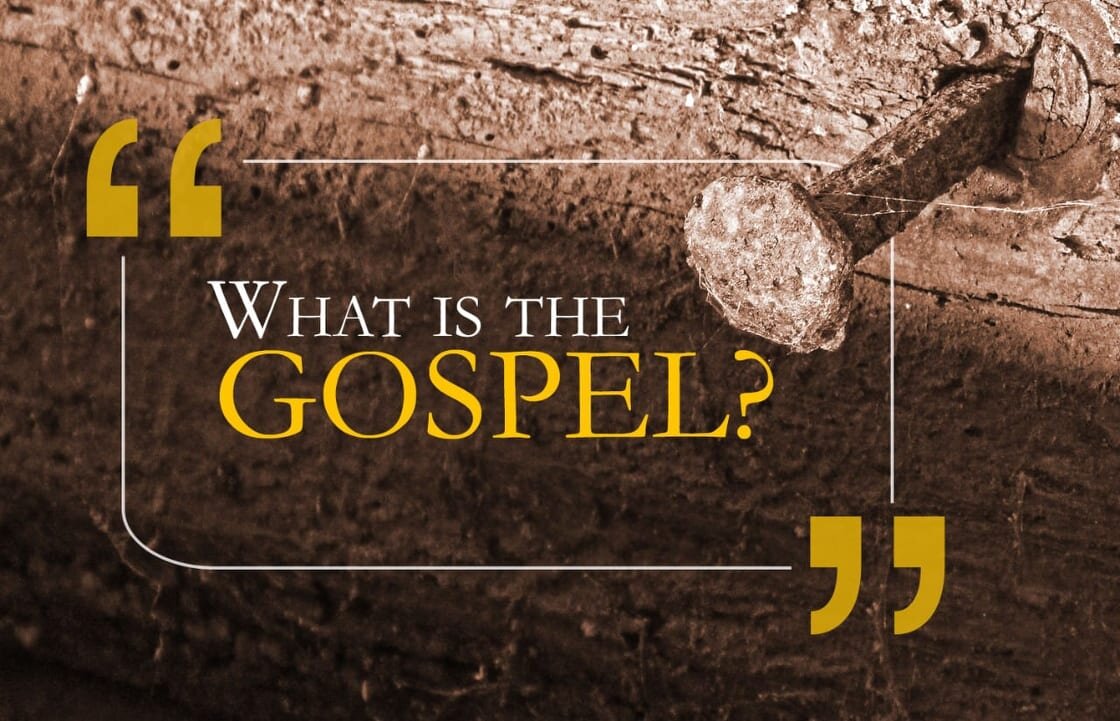What is the Gospel?
Over the years I have had the privilege of attending many different conferences on evangelism. One aspect of these gatherings which I really enjoy is the time of fellowship between the session where I get to meet other likeminded brothers. At one such conference I found myself in conversation with a young man who told me that he was called of God to be an evangelist to the youth. As we chatted, he told me about all his different plans and methods that he had devised in order to better reach young people.
It was clear that this young man was passionate; you couldn’t help but feel stirred to action by listening to him talk, but something wasn’t sitting right with me. It was hard to put my finger on it, but it just felt like something was missing.
As we spoke further, I said, “You keep talking about how you are planning to reach people, but you haven’t told me the message. What is the gospel?” The young man paused, then looked at me as if I had three heads. Here I was at a conference aimed at evangelists, yet I am asking him to tell me the fundamental message of Christianity.
He seemed a bit confused at my question, so I asked again, “What is the gospel? You told me you are an evangelist, so I am hoping you can explain the gospel to me.” It was clear from the look on his face that such a question had never been put to him before, so after thinking for a few moments he said, “The gospel is saying the sinner’s prayer.” Now it was my turn to be a bit confused, so I asked where that was found in the Bible. He replied by telling me that in John 14:6 it says, “I am the way the truth and life, and no man comes to the Father except by saying the sinner’s prayer.”
I wish I could say that I was making up this story, but this was serious discussion at an evangelistic conference in Brisbane. This young man was passionate and sincere, but he hadn’t a clue as to the central message of Christianity.
The problem is this young man isn’t unique, although his definition of the gospel may be! There are many people in our churches, including those who truly desire that the lost come to know Jesus, who don’t understand the gospel.
Ray Comfort suggests that a good way to test if someone knows the gospel is to ask a Christian to imagine that you have a knife in your back, and that you’ve only got three minutes to live. Then ask them to explain the gospel to you so that you can be assured of going to Heaven. I have tried this line many times, with the majority of Christians getting confused over what the gospel actually is about.
So, what is the gospel? If you had to explain the gospel in three minutes could you do it?
To help you better share the gospel, or to perhaps understand the gospel message, let me give you three key points that we need to share in our evangelism. Let’s look at 1 Corinthians 15:1-4,
Moreover, brethren, I declare to you the gospel which I preached to you, which also you received and in which you stand, by which also you are saved, if you hold fast that word which I preached to you—unless you believed in vain. For I delivered to you first of all that which I also received: that Christ died for our sins according to the Scriptures, and that He was buried, and that He rose again the third day according to the Scriptures…
In the first two verses, Paul reminds the church of the gospel he preached to them, then he goes onto explain what he means by the gospel. In the CSB translation of this verse, it stresses that the gospel is “most important”, in other words, the gospel is a fundamental message we need to understand and share; it is vital we have clarity on this issue.
Let me give you three key points from this passage which must be included in every gospel presentation; these truths need to be present when we share the gospel one to one or even if we are preaching at a crusade in a stadium.
1. The Reason Christ Died (v3)
If you have been around evangelicalism for any length of time, it would be safe to assume that you have heard the saying, ‘Jesus Saves.’ Yet, what is often missing in that statement is the information on WHY we need Jesus to be our saviour. It is well and good to hear the truth that Jesus saves, but why does someone need salvation?
Think of it this way. Imagine I came running into your home, picked you up, and then went running out of the house yelling, “I’ve saved you! I’ve saved you!” If I did that, chances are you’d think I was crazy. However, if I came into your home, explained that you were in great danger, and then carried you out; my actions would make sense.
The same is true with the gospel, which is why Paul here stresses that Christ died for our sins. Paul wants his readers to understand that they have personally sinned against God, and because of that sin they deserve judgement. He starts with the bad news by explaining the sinfulness of humanity.
Our sins declare that we should be executed (Romans 6:23); this is why we need the Saviour. If we are going to tell people about Jesus, we need to explain why they need Him. The reason we need the rescuer is because our sin says we are in need of rescue.
2) The Fact that Christ Died (v3)
Once you have explained why we need Jesus, you can move on to proclaim the good news that Jesus has died on the cross for sinners. Our goal in all our witnessing encounters must be to proclaim the fact that Jesus went to the cross to die as a substitute for sinful people.
The cross is the central symbol of Christianity for good reason, as without the cross of Jesus there is no salvation. Without Jesus dying in the place of sinners, then there is no hope of our sin punishment being paid. Our sin brings death, but Jesus shows love for sinners in that He takes their judgement on the cross.
When we share the gospel, we must talk about Jesus dying on the cross, but as we do so, we need to stress that Christ died willingly in the place of sinners. Jesus didn’t deserve to die, but out of love He chose to die as a substitute.
Share the truth that our sin brings judgement of death, but then share about how Jesus loves sinners, and how He died on the cross for those who deserve wrath. Magnify the love of God, by proclaiming Christ dying for the lost (Romans 5:8).
3) Christ is Risen! (v4)
It is very easy to finish our gospel presentation at the death of Jesus; it is simple to talk about sin and the cross, but then forget to talk about His victory in the resurrection.
Paul, when explaining the gospel, talks about sin, the death of Jesus and then the wonderful truth that Christ is risen again! Do not leave Jesus dead on the cross; speak of this marvellous truth which sets Jesus apart from all others. All other religious leaders died and stayed in the grave, but Jesus is alive!
If we want to faithfully share the gospel then we must tell people of the resurrection of Christ, because if they are going to be saved they must believe this truth (Romans 10:9).
Be warned though, out of all the points of the gospel, this point is the one people will object to the most. People will hear of sin and the death of Jesus, but when it comes to the resurrection many will scoff. This is what happened to the Apostle Paul in Acts 17:30-33, yet despite all the mockery the resurrection still had to be proclaimed. Even though some may laugh, others will believe.
Proclaim the resurrection, as we are justified through Christ rising again (Romans 4:25).
Summary
We have briefly seen the three vital elements of any gospel message; if you follow this outline then you will be able to share the gospel with anyone. Remember, we must talk about sin, the death of Christ and the resurrection; once we proclaimed these truths, we must then follow the example of Jesus in Mark 1:15 in that we call on people to “repent and believe the gospel.”
I hope this simple outline assists you in your gospel encounters. Try to commit these three points to memory, so that when it comes time to evangelise you are ready to go.
Keep Making Much of Jesus!

